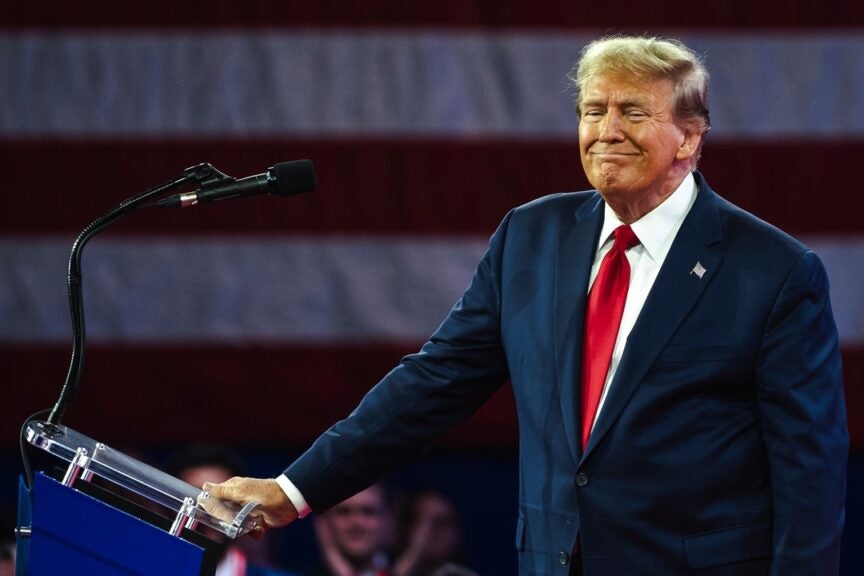Trump Dismisses China’s Film Restrictions as Tariff Tensions Escalate
Former U.S. President Donald Trump has downplayed China’s recent reduction of imported American films amid escalating trade tensions, suggesting the move could have been more severe. The comments come as major studios like Disney and IMAX face shrinking access to China’s lucrative market—a development experts warn could reshape global entertainment trade dynamics. Industry analysts estimate the restrictions could cost Hollywood over $500 million annually.
China’s Film Quota Cut Sparks Industry Concerns
China’s National Film Administration quietly reduced its annual import quota from 34 to 24 foreign films in 2024, with U.S. productions bearing the brunt. This marks the steepest decline since 2012, when China first expanded access under WTO pressure. The move coincides with:
- Ongoing U.S.-China tariff disputes on $370 billion worth of goods
- Beijing’s push to grow its domestic film market to $12 billion by 2025
- Political tensions over Taiwan and technology restrictions
“This isn’t just about economics—it’s about cultural influence,” said Dr. Lian Zhao, media studies professor at Peking University. “When China tightens the valve on Hollywood content, they’re also limiting Western narratives.”
Trump’s Response and Industry Reactions
Speaking at a rally in Michigan, Trump framed the restrictions as a minor issue compared to broader trade imbalances: “They took away some movies—big deal. We’re talking about hundreds of billions in unfair trade practices. Frankly, they could’ve shut the door completely.” His remarks contrast with industry alarm:
IMAX reported a 17% drop in Chinese revenue last quarter, while Disney’s Marvel films—which earned $1.7 billion in China from 2019-2022—now face uncertain release dates. “The Chinese market represents 20-30% of potential global box office for tentpole films,” noted Alicia Reese, equity analyst at Wedbush Securities. “When that spigot turns off, studios must recalibrate entire production slates.”
The Broader Trade War Context
The film restrictions emerge as both nations escalate tit-for-tat economic measures:
| Date | Action |
|---|---|
| May 2024 | U.S. imposes 25% tariffs on $18B Chinese steel |
| June 2024 | China restricts rare earth mineral exports |
| July 2024 | Film quota reduction implemented |
Cultural products have frequently served as trade war collateral. In 2018, China temporarily banned South Korean entertainment during a THAAD missile defense dispute. “Entertainment is low-hanging fruit in geopolitical spats,” explained trade attorney Mark Cohen. “It impacts fewer jobs than manufacturing sectors, making it politically expedient.”
Adapting to New Market Realities
Studios are pursuing three strategies to mitigate losses:
- Co-productions: Partnering with Chinese firms like Alibaba Pictures
- Content adjustments: Editing films to meet Chinese censors’ guidelines
- Market diversification: Expanding in India, Southeast Asia
However, these approaches carry risks. Co-productions require sharing intellectual property, while self-censorship has drawn criticism. When Disney altered scenes in Doctor Strange 2 to appease Chinese regulators, the film still failed to secure a release date—costing an estimated $200 million.
What Comes Next for U.S.-China Entertainment Trade?
Experts predict prolonged strain regardless of November’s U.S. election outcome. The Biden administration has been equally firm on China, though more measured in rhetoric. Meanwhile, China’s box office continues growing without Hollywood—local films captured 84% of 2023 revenue.
“This is a wake-up call,” said former Sony Pictures executive William Feng. “The era of counting on China to bail out underperforming films is over. Creativity must drive profits, not geopolitical luck.” As studios reassess global strategies, the silver lining may be renewed focus on storytelling over spreadsheet calculations.
For deeper analysis on entertainment industry trade policies, subscribe to our weekly Global Markets newsletter.
See more Business Focus Insider Team

